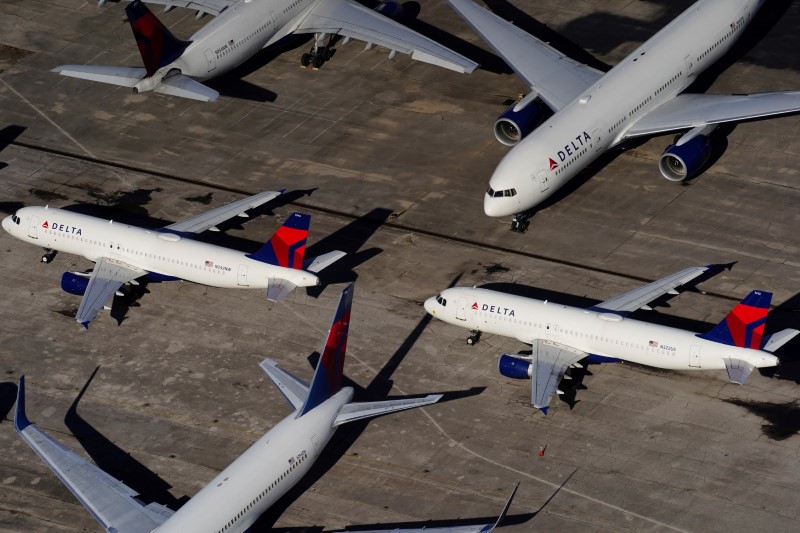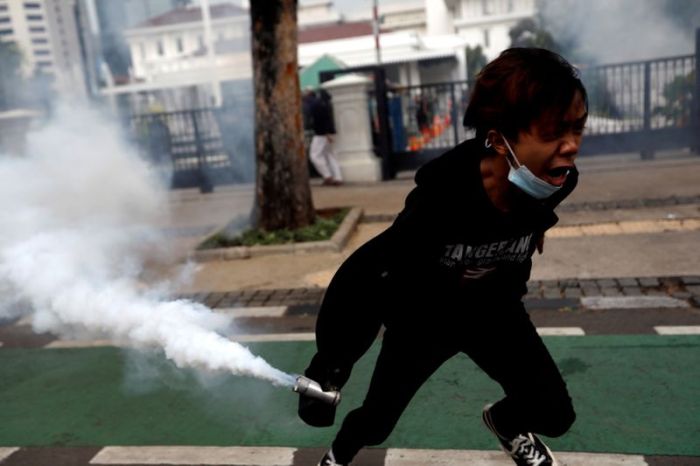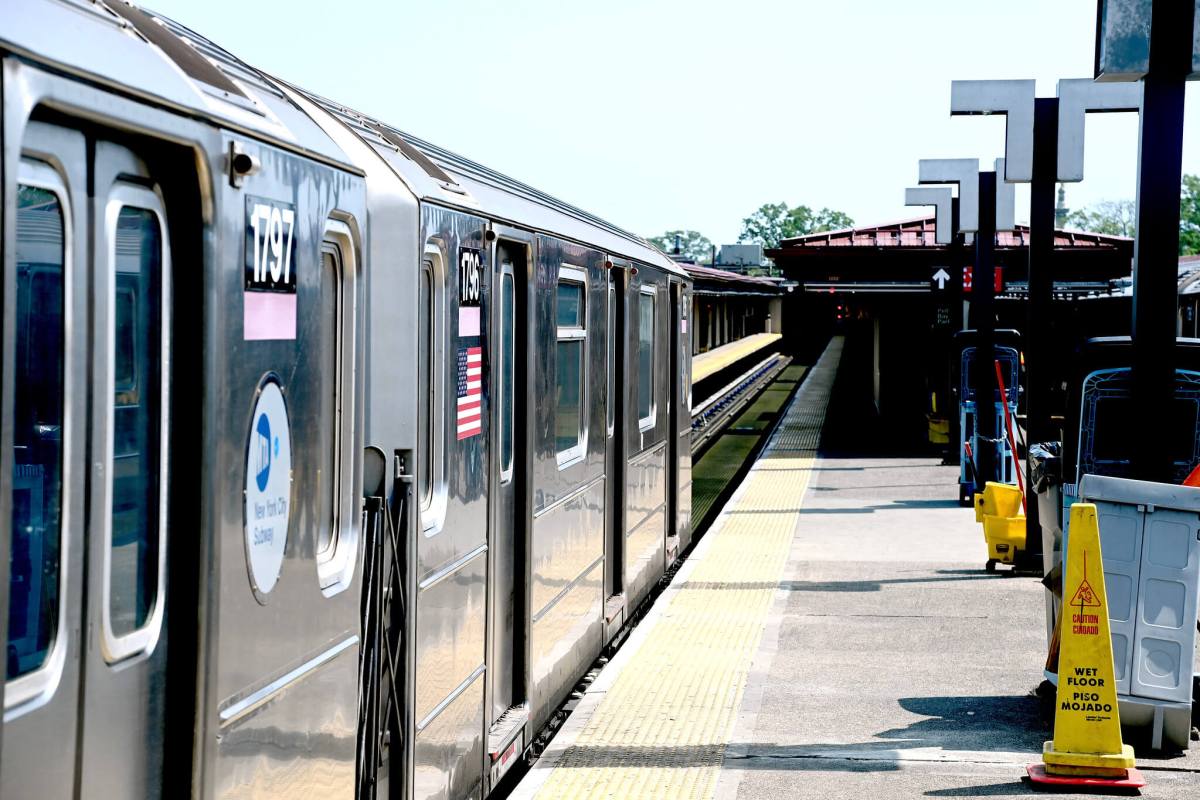CHICAGO (Reuters) – Delta Air Lines does not expect to plug a daily cash bleed until next spring due to the COVID-19 pandemic, which hit its business harder than expected in the third quarter, Chief Executive Ed Bastian said on Tuesday.
With the timing and shape of a recovery still uncertain, Delta and other airlines have focused on cutting costs, boosting liquidity and restoring customer confidence.
But quarantines, fresh COVID-19 outbreaks in Europe and the United States, and uneven public health measures remain a deterrent, Bastian said.
Shares were down 3.2% in midday trading.
To boost demand and ease travel restrictions, Delta is betting on increased COVID-19 testing and contact tracing and increasing data showing the risk of COVID-19 transmission on airplanes is “remarkably low,” Bastian said.
Revenues at Delta, which is blocking middle seats into early January, fell 76% to $3.1 billion in the third quarter from a year earlier, with little improvement seen this year.
Business travel will recover in 12 to 24 months, though not to 100%.
Costs, however, will trend lower, helping drive an improvement in daily cash burn to around $10 million in December from $18 million in September and $27 million in June.
Delta had previously said its cash bleed would stop before the end of the year.
“Delta achieved much of their cost objectives; now it is about recovery in demand and revenue,” Cowen analyst Helane Becker said.
With no immediate need for new jets, the company has delayed the delivery of Airbus and Bombardier aircraft and postponed more than $2 billion of payments originally due this year and $5 billion due through 2022.
It also accelerated the retirement of nearly 30% of its fleet, or 400 aircraft, by 2025, causing a $2.2 billion restructuring charge.
Overall flight capacity will be down 40% this year.
It took a $3.1 billion charge after some 18,000 employees took voluntary separation and early retirement programs aimed at slimming its workforce.
With fewer employees, Delta still has $1.3 billion in grants left from some $5.5 billion it received in aid from Congress in March to cover airlines’ payroll costs for six months and protect jobs.
“We’ve stretched those dollars out,” Bastian said. The money can be used in the fourth quarter, on top of any additional aid if lawmakers finally approve another $25 billion payroll support program for U.S. airlines.
An industry push for more aid has broad bipartisan backing but is stalled amid a Washington deadlock over wider COVID-19 economic relief.
Unlike its two major rivals, Delta has avoided the furlough of flight attendants and other frontline employees after reducing work hours, but it could still furlough some 1,700 pilots on Nov. 1 without a union agreement or more federal aid, Bastian said.
Atlanta-based Delta ended the quarter with $21.6 billion in liquidity, after a $9 billion capital raising in September secured by its loyalty program. Adjusted net debt totaled $17 billion.
Delta, the first U.S. airline to report third-quarter results, plans to start paying down its debt next year once it has positive cash flow, Bastian told investors.
The company swung to a $5.4 billion net loss, or $8.47 per share, in the quarter from a $1.5 billion profit a year ago. On an adjusted basis the loss was $3.30 per share.
(Reporting by Tracy Rucinski; Additional reporting by Sanjana Shivdas in Bangalore; Editing by Leslie Adler, Steve Orlofsky and David Gregorio)

























